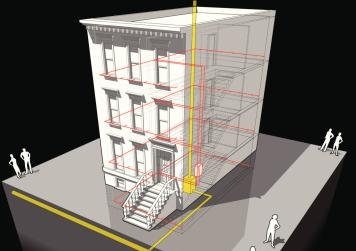Researcher seeks big gains from small power systems
UNSW PhD student Christoph Ummenhofer will travel to Germany in July to find ways to improve the efficiency of residential co-generation power plants.
UNSW PhD student Christoph Ummenhofer will travel to Germany in July to find ways to improve the efficiency of residential co-generation power plants.

UNSW PhD student Christoph Ummenhofer will travel to Germany in July to find ways to improve the efficiency of residential co-generation power plants.
Ummenhofer received a German Foreign Exchange Fellowship, which allows him to be based at the University of Applied Sciences Landshut where an experimental co-generation plant is available for research use.
The co-generation unit uses a gas-powered internal combustion engine to produce electricity and heating for buildings.
Though co- and tri-generation are already considered an efficient way to power, heat and cool buildings, Ummenhofer sees room for improvement, particularly on smaller systems that do not run continuously.
These small systems may be used in place of a boiler in the building's basement, and be powered up or down multiple times in a day, depending on requirements.
Ummenhofer wants to find ways to minimise the energy wasted by stopping and starting the engine — looking at strategies to try and keep the engine 'warm'.
"In a sense, it's really fine tuning of the plant but every little bit of extra efficiency helps," Ummenhofer says.
Ummenhofer has modelled a system that can now be used to simulate a number of energy-saving scenarios using various software packages.
"He's now in a position where he's making predictions about what's going on, but it's always nice to be able to verify these predictions against real-world data," says Dr John Olsen, Ummenhofer's PhD supervisor in the School of Mechanical and Manufacturing Engineering.
Ummenhofer says the co-generation system in Germany is integrated into the building services and is used to provide power and heat.
"I will use data from that system to verify my model," he says.
Media contact: Ry Crozier, UNSW Media Office, 02 9385 1933 r.crozier@unsw.edu.au